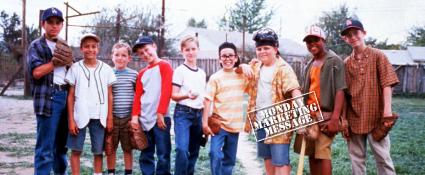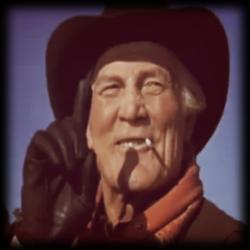As the owner of a business you can imagine that sales people call on me all the time. I get emails, letters in snail-mail and phone calls on a daily basis. I even get the occasional pop in to the office in the hopes that I'll be available to be sold to.
Most of these sales people have one key thing in common. Most of the time the attitude is that of, "I have something to sell and I want to see if you want to buy."
I hate that. I hate being looked at as a wallet. I'm fortunate my children aren't old enough yet to ask me for more money and I'm sure I'll hate it when they are.
I am a very difficult person to sell to. If you can figure out how to sell to me, you can probably be more successful in your sales career. I won't pretend to be the best sales person or the best sales coach so you won't be seeing a new sales book or a lecture series on how to be the best sales person in the world. However, here are the reasons I choose to buy from a sales person or, better, what it takes to get me to love you as a sales person and ultimately trust you enough to buy from you.
Consistency and Persistency in Effort
Getting the first appointment is the hardest part with me. I've trained my gatekeepers to screen sales calls. And, the fact is, they are pretty darn good. I bet they filter out at least half of the sales people that want to take my hard-earned money.
When my gatekeepers see someone is genuinely working hard to get the appointment, it wears on them and they'll eventually encourage me to at least take the appointment. They won't do this if the person is a dolt but if they get a phone call every month and occasionally see that same person stop in, at some point they will tell me to just visit with them for a couple of minutes.
The same is true if I see constant efforts in email, phone, snail-mail, etc. I may ignore your email the first dozen times. If it's personally sent and obviously not automated then I am less likely to delete. I may not take action. I may delete it. However, I won't be frustrated. At some point I'll feel obligated to at least respond with something you can work with, if you are good.
Relevancy
If you are selling something that is relevant to what I need, you have a much greater chance of getting the appointment. Even if I don't plan on buying for a long time, I'll be more likely to let you meet with me and start the relationship if your product is relevant. Also, I'll be less likely to ignore your messages.
This is a challenge for any sales person because you never know what's going to hit the nail on the head. For any sales person that is good, I'm an open book. I blog a lot. I'm very active on social media. If that sales person takes just a little time to pay attention, he or she will know what I'm interested in. It will then be easier for that person to be noticed.
I'm amazed how often I get pitched to buy a product or service that I actually sell. If you don't understand me well enough to understand what I sell then you don't deserve my time.
Genuine Interest
This, I think, is the hardest thing to get. Some people are naturally curious enough that they are interested in what other people do. They want to find out more. As such, it's easier for them to ask me, with genuine interest, what's important to me. Other people have to work harder at it.
Just as genuine interest is the hardest thing for a sales person to have, it's the easiest for me to identify when someone is being fake. I can tell by the questions you ask and how quickly you get to the pitch.
I don't want the fake pleasantries. Too often sales people have been drilled so much to build some sort of relationship that it's obvious they are trying to get to some common ground with trite questions and comments.
If you get the first appointment, you have to get to your point to demonstrate relevancy by asking questions about me that helps me know you are relevant, have done your homework, and are genuinely interested in me. If your product is not immediately obvious how it's relevant, then you have to show me how you are relevant for me to take the time to learn about your product.
Get to the Point
When you get the first appointment I'm likely going to be pretty impatient. If you know me already, you'll know that I'm very process oriented and am very quickly ready to move on to the next thing.
I don't like the big set up and then the big reveal. For example, when I ask you for a price range, I don't want to hear, "Well, I can't really give you a range because it really depends on..."
Come on, give me a break; I'm smarter than that. You have worked with companies my size before. You have done other deals. You can give me a range.
Don't play dumb and don't stall. I want to know quickly whether or not you have value to me. Remember, I have money that you want. If I can't afford you then there is no point talking. If I don't see value quickly, I'm going to show you to the door.
Get to the point quickly. Show me value. Then build the case around it.
Serve Me
I don't care what you know. I don't care how long you've done business. I don't care about you. That is, until I've built a relationship with you. At first, you are only yet another person that wants to take money out of my pocket.
You get into my good graces by serving me. That can be very simple. That can be sending me a note with an article that I might be interested in. That might be bringing something for my office staff to enjoy. That might be inviting me to an event that I might like.
I'm not saying you have to come and clean my car. That would be taking it too far.
Give me something I can use. Do it more than once. Tell me how you can help me. Show that you understand me.
In fact, this is one of the key reasons I speak at events or host educational workshops. I want to give people something they can use. I pitch very little and give away knowledge. I want people know I genuinely care about them and am willing to give them something whether they choose to buy from me or not.
Ask for the Sale
I'm going to hold you to a pretty high standard and I'm going to test you. Because I know how to sell and I understand the sales process, I'm going to expect you to walk me through the steps to buy your product.
I don't want you to jump ahead to the end to the "buy my product" line. I am going to expect you to take me to the next step in the process. I'm going to expect trial closes. I'm going to expect you to ask for the next appointment. I'm going to expect follow-ups. I'm going to expect you to be willing to hear, "no" and I'm going to test how you handle it.
In fact, sometimes I'll tell you that I'm going to think about it to see what you do. Are you going to send me a follow-up email about our meeting? Are you going to call me when you said you would? Are you going to resolve my concerns? Are you going to be patient or be pushy?
If you don't understand the sales process, I'll give you little nudges to help you along. If you still don't get it, I'm probably not going to buy from you.
Final Thought
When I meet a sales person that is really trying to be successful and trying to do it right, I want that person to succeed. If I see that you are genuine but are struggling, I'll help you through it. I'll even give you pointers and advice. The better you take that advice, the more likely we'll have a long-term relationship.
A long-term relationship means I will give you more money and I will connect you with people that can give you more money. It doesn't mean I'm going to hang out with you. It doesn't mean we are going to be best friends forever. But it does mean that I'll take care of you.
But, don't ask me to tell you who to go sell to. Don't give me $100 for a referral. Don't expect me to do your job for you. I'll give you leads if I trust you and if I see that someone needs your service.
Oh, and until we are friends with an established relationship you will probably think I'm very rude. When I'm kind to you and don't rush you, that's how you'll know you're on the right track. If you don't think I'm rude by the end of the first meeting, congratulations, you might be able to make some money... evenutally.










